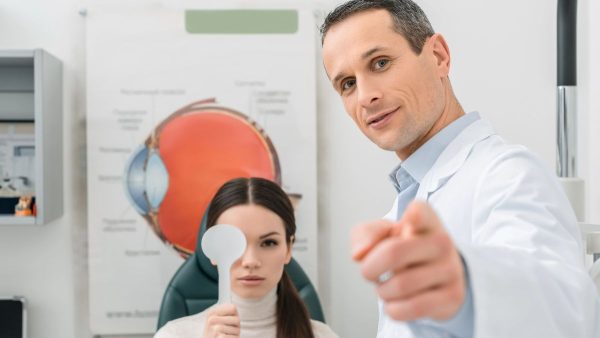Can an optometrist diagnose eye problems?

You want to know you’re in good hands when it comes to your eyes. So, it’s natural to wonder, “Can an optometrist diagnose eye problems?” The answer is yes! Optometrists are your go-to professionals for all things eye-related, from routine check-ups to identifying more severe conditions.
What is an optometrist?
First things first—what exactly is an optometrist? Consider them the friendly experts you see when you need an eye exam or new glasses. They specialize in eye care, focusing on diagnosing and treating vision problems and eye diseases. While they aren’t medical doctors or doctors of osteopathy, they hold a Doctor of Optometry degree, which they earn after four years of optometry school. Many optometrists also complete an undergraduate degree and may even take on an additional year of residency to sharpen their skills.
What does an optometrist do?
Optometrists do a lot more than just check your prescription. During a visit, they perform comprehensive eye exams that detect various issues, from common vision problems like nearsightedness to more severe conditions such as glaucoma and macular degeneration. And it doesn’t stop there—these exams can also reveal signs of broader health issues like diabetes, multiple sclerosis, or even certain types of cancer. Your eyes can tell much about your overall health, and optometrists train to pick up on those clues.
If something is off, your optometrist can prescribe glasses or contact lenses to correct your vision. They can also prescribe medications for eye diseases and offer non-surgical treatments like vision therapy. In other words, they’re equipped to handle most of your eye care needs.
How optometrists fit into the eye care team
Optometrists are an essential part of a larger team that includes opticians and ophthalmologists. Opticians help you choose and fit the right glasses, while ophthalmologists are medical doctors who specialize in eye surgery and more complex eye conditions.
Even though optometrists and ophthalmologists both have advanced degrees, they play different roles. Optometrists handle most primary eye and vision care, making them the first person you turn to when something seems off with your eyes. If you need surgery or specialized care, your optometrist will refer you to an ophthalmologist.
The bigger picture
Beyond diagnosing and treating eye problems, optometrists are also educators. They’ll give you tips on how to keep your eyes healthy, from reducing screen time to proper eye hygiene. If you’re preparing for or recovering from eye surgery, your optometrist will guide you, ensuring you have the best care at every step.
Wrapping it up
So, can an optometrist diagnose eye problems? Definitely. They’re highly trained professionals who can identify, treat, and manage various eye conditions. Whether you need an eye exam, new glasses, or help with a more serious eye issue, your optometrist is there to help you see the world clearly. And if something more complex comes up, they’ll connect you with the right specialists to ensure you get the best possible care.
